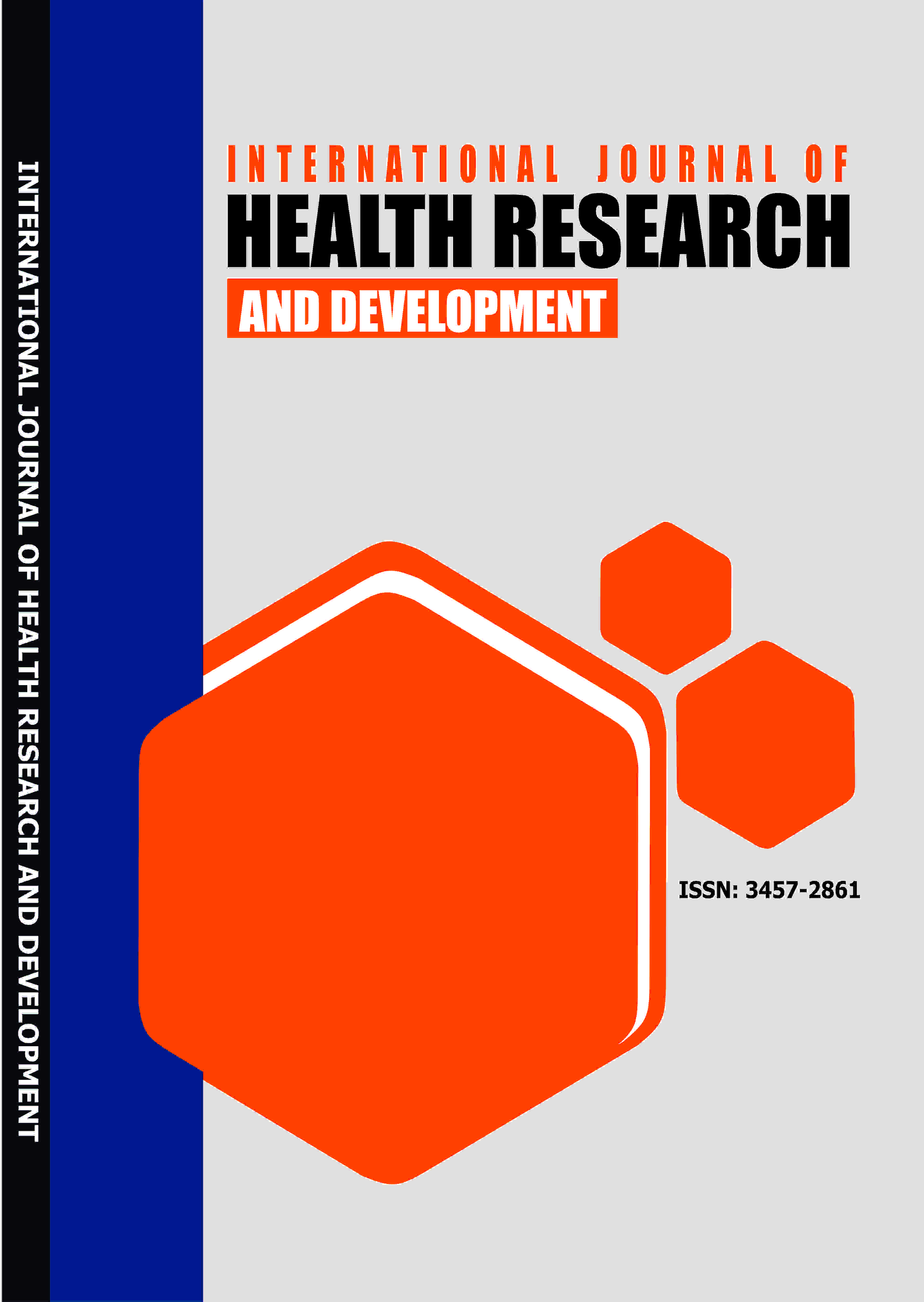INTERNATIONAL JOURNAL OF HEALTH RESEARCH AND DEVELOPMENT (IJHRD)
THE PROGNOSTIC VALUE OF HYPONATREMIA AND HYPOKALEMIA IN MYOCARDIAL INFARCTION PATIENTS
E-ISSN: 7883-6773
P-ISSN: 3457-2861
DOI: https://iigdpublishers.com/article/94
Syria is one of the countries with a high risk of ischemic heart disease. It is one of the most causes of morbidity and mortality worldwide. Myocardial infarction does not mean simply occlusion of an epicardial artery. Rather, it is a systemic, metabolic, and neurohormonal process that affects and is affected by other systems, including blood ions. In this research, we will study the changes in sodium and potassium in patients with myocardial infarction and their impact on prognosis. This study included 100 patients. Patients were divided into two groups, a high-risk group and a low-risk group based on the GRACE score, and
successive laboratory tests were made for both sodium and potassium from admission to discharge. We found the incidence of hyponatremia was 54% and hypokalemia was 64%. We found that early hyponatremia was associated with short-term prognosis (p-value = 0.001), and hyponatremia at discharge was associated with longterm prognosis (p-value = 0.003). We found that early hypokalemia was associated with short-term prognosis (p-value = 0.001). We found
a significant association between the development of cardiac shock and hyponatremia (p-value = 0.001, OR = 40.1), and significant association between the development of arrhythmias and hypokalemia (p-value = 0.002, OR = 41.9). We also found that the return of values to normal ranges at discharge indicates improvement and response to treatment.
Ahmad Alabrass
Aghaeishahsavari M, Noroozianavval M, Veisi P, Parizad R, Samadikhah J. (2006). Cardiovascular disease risk factors in patients with confirmed cardiovascular disease. Saudi Med J 27:1358–61.
Jeldsen KK. (2010). Hypokalemia and sudden cardiac death. Exp Clin Cardiol 15(4) 96-99.
Lobo DN. (2004). Fluid, electrolytes, and nutrition. Physiological and Clinical Aspects. Proc Nutr Soc 63(3) 453-466.
Mati E, Krishnamurthy N, Ashakiran S, Sumathi ME, Prasad R. (2012). Dyselectrolytemia in acute myocardial infarction-a retrospective study. J Clin Biomed Sci:2(4) 167-174.
Lim W, Qushmaq, Cook DJ, et al. (2005). Elevated Troponin & Myocardial infarction in the intensive care unit: a prospective study. Crit Care;9: 636-644.
